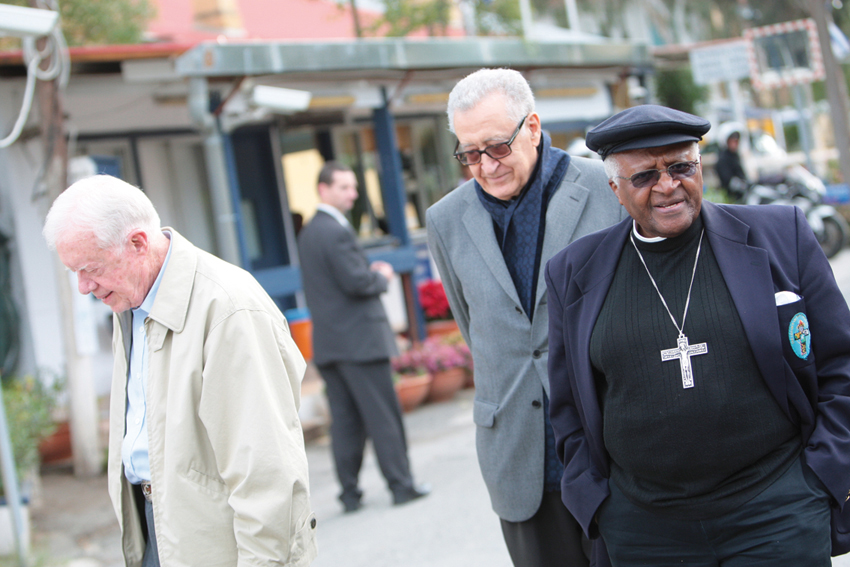As his Reuters obituary put it on Monday, Jimmy Carter was “widely seen as a better former president than he was a president”, and this capacity extended to a trip to Cyprus alongside Archbishop Desmond Tutu and former Algerian Foreign Minister Lakhdar Brahimi in 2008.
The trip was organised by international non-governmental organisation The Elders, which has as its stated purpose to “help resolve some of the world’s most intractable conflicts”.
Carter, Tutu, and Brahimi arrived in Cyprus on October 8 that year, with the Cyprus Mail on the day writing that the trio “arrive … to give a boost to the flagging Cyprus talks and to encourage the leaders by lending their weighty support to the process”.
They were due to meet both then-President Demetris Christofias and then-Turkish Cypriot leader Mehmet Ali Talat, as well as civil society representatives and young people from the island’s Turkish Cypriot and Greek Cypriot communities.
Upon his arrival, Carter said, “today’s young people are the ones who will live with the outcome of their leaders’ work”.
“The first time in their lives that they will cast a ballot may even be to vote on the outcome of the current peace process. I hope that day is not far off. I am all too aware of the many years it has taken to get to this point.”
The following day, when he met a group of 30 young Cypriots, he told them, “we pray and hope and trust that [Christofias and Talat] will be successful”, while adding that “it is very important for the people living here to know that the rest of the world is pulling for you”.
Three years after the trio’s visit, The Elders launched a documentary about the missing persons in Cyprus, following Tutu, Brahimi, Carter and four young Cypriots as they learnt about the search for the remains of Cyprus’ Missing.
“The Elders hope that this film will help current and future generations of Cypriots to better understand the painful experiences and memories of their families and communities, and that dialogue and understanding may eventually help to heal the wounds of the past,” The Elders said at the time.
“Ultimately, the film aims to prompt discussion on how communities can move forward following violence and division to build lasting a peace, an issue that is applicable not only to Cyprus but to post-conflict societies around the world.”






Click here to change your cookie preferences